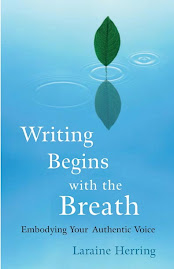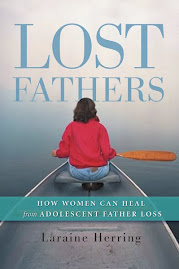How to Bury Your Father
First, make sure your father is dead.
It’s important to note that although he may no longer be breathing,
he may still be alive for you.
If he is alive for you, then no amount of digging, or
flower planting
or epitaph writing
will do the trick.
Second, ask yourself if you indeed are ready
for your father to be dead.
You may have noticed that people die
in the most unexpected times --
when you are a child, or a young adult, or a new parent;
in the most unexpected ways –
crossing the street after a puppy, falling asleep with too much gin, or
the simple slice of an attack of heart.
If you are not ready for your father to be dead,
then no amount of praying, or
crying,
or counseling
will do.
Third, determine what you need to take with you from your
father – though he is dead, surely, dead now.
Do you need the Timex he wound each night so time would not run out?
Do you need the LP of Elvis, Live at Madison Square Garden
so you’ll always know how to make yourself cry?
Do you need the money clip with his initials – GAH – to remember to always carry
twenty dollars because “you never know when you’ll need a cab?”
Do you need the weight of his life-long illness?
His rage at his body, his crises of faith?
Do you need his golf putter – the one he used to scratch the ball of his foot that
polio had
eaten away?
Be ruthless.
If you don’t need these things, box them up.
Bury them first.
If you do need these things, refer back to stanza
two.
If you have reached this place in the poem, then you are
ready to bury your father.
Take a deep breath.
Exhale the midnight chocolate cake eating contests,
the scream from the bedroom when the last stroke came,
the coldness of his hand in ICU.
Inhale again, and on the exhale,
drop his body into the earth.
You have taken what you needed.
The rest is up to him.
______________________________________
This poem came out of an assignment for a class I'm taking this summer with the amazing Peter Levitt. I wrote this in the way I usually write things -- a big dump, and then an editing. This was interesting for me in several ways, so I thought I'd post it for the purposes of "the writing process" and the notion of the poet/author as narrator.
I've noticed when I teach poetry that many students believe the narrator of the poem is the poet. They seem to struggle more with that distinction in poetry than in prose (though they struggle with it in prose too). This poem is written in the 2nd person, something I don't do very much, but I'm currently working with 2nd person in my memoir -- using the 2nd person as the voice of my dad the last five minutes he was alive. Obviously, I'm making that up -- although I was in the hospital room with him, I couldn't know what, if anything (he was comatose) he was thinking or feeling. That may be why this poem surfaced as 2nd person. Or it may be nothing besides what happened when I started to write. Sometimes a cigar is just a cigar!
Some of the details in here are true (golf putter, polio, heart attack, died before I was ready, money clip). Some of the details are not true (alcoholic, running after a puppy). The loop in time (return back to stanza 2) and the progression of the process are very much true to experience. Just because someone dies doesn't mean we're ready for that. They may be gone, but sometimes we're still attached. I've been writing myself free of my father's illness and death my whole life. Maybe this newest book I'm working on will be the final huzzah. I really can't know. I just keep mining what shows up to be mined.
I've never written about fathers in a poem before without it being a direct experience of me and my dad. This was very freeing (and maybe a sign that this new book really is the final huzzah). I also appreciated being able to add the qualities I absorbed -- how pissed off he was at his body, how frustrated and angry he was because he was sick -- and move beyond the idealization of a relationship that ended too soon.
Ultimately, I wish he could talk about it with me, but that's the kicker, isn't it?
He's dead and I'm not, and today, I'm the one who is grateful to make a poem.
Tomorrow I may not have a poem.
Today.
Today.
Today.
Thank you.
Subscribe to:
Post Comments (Atom)











3 comments:
Laraine,
This poem reads so fluidly, so powerful - but it doesn't read you - as in you as speaker. It just reads very, very true - and true for you in many ways I'm sure. . . just not your voice. So thanks for talking about that.
Hope the Leavitt class is going wonderfully; it seems to be.
Thanks, Andi. That was one of the reasons I wanted to post it. I am mostly a fiction writer, and my characters don't sound like me, though I hope they read "true". Poetry can be like that too -- it doesn't have to all reflect the exact personal views of the author to be effective for others. I might have to do a lesson/unit on this in the fall.
FYI, I'm listening to a flock of squawking ravens outside my window now! Reminds me of NY!
Andi! I love this! I am going to post something on my blog that will reference this poem. I think you like it very much. Watch for it.
Henry Pierre
Post a Comment